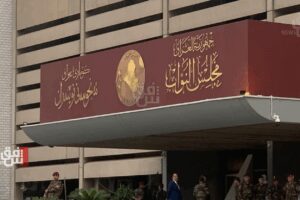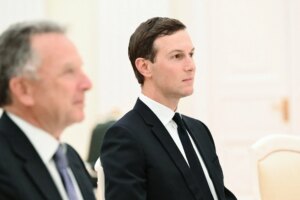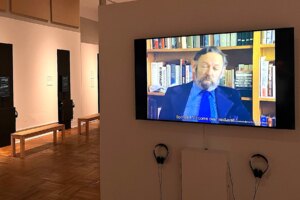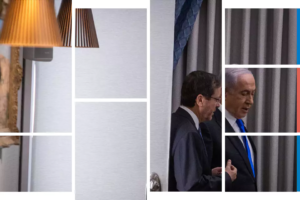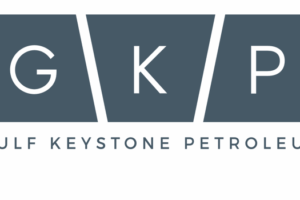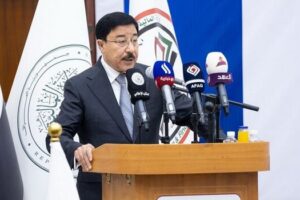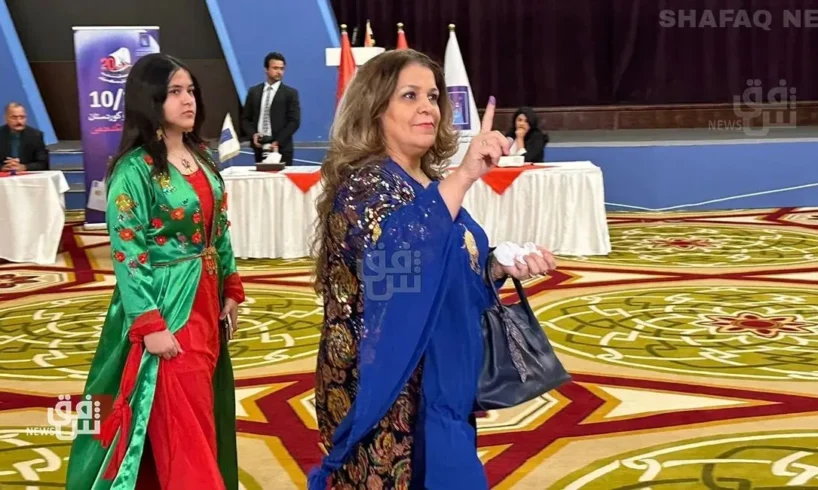
Shafaq News – Erbil
The Kurdish political arena stands at the
heart of Iraq’s upcoming parliamentary elections set for November 11, 2025.
With 301 Kurdish candidates among the 7,768 contenders approved nationwide, the
Kurdistan Region once again forms the decisive spine in shaping Iraq’s
political future.
The Region’s 46 out of 329 parliamentary
seats — including 12 reserved for women — will not only determine Kurdish
representation in Baghdad but also reveal whether Erbil and Al-Sulaymaniyah can
overcome their enduring divisions to reassert a unified voice at the federal
level.
Electoral Map: Provinces and Candidates
In Erbil Province, 108 candidates are
competing for 16 seats, including one reserved for the Christian quota and four
for women. The Kurdistan Democratic Party (KDP), led by Masoud Barzani, and the
Patriotic Union of Kurdistan (PUK), chaired by Bafel Talabani, each field 30
candidates. They are followed by Helwest (the National Stance Movement) with
12, the New Generation Movement (Al-Jeel Al-Jadeed-NGM) with eight, and the
Kurdistan Islamic Union (KIU), led by Salahuddin Bahauddin, with four. The
Kurdistan Justice Group (KJG) also joins the race with a smaller list.
In Duhok Province, 58 candidates are
contesting 12 seats, including one for the Christian community and three for
women. The KDP again leads with 22 candidates, followed by the PUK, the New
Generation, and the Kurdistan Social Democratic Party (KSDP), each with five.
The KIU and KJG are both present, each fielding four candidates across the
province.
Al-Sulaymaniyah and Halabja together have 135
candidates competing for 18 seats, including five reserved for women. In
Al-Sulaymaniyah, both the PUK and KDP are fielding 36 candidates each, followed
by Helwest with 18, New Generation with 12, and the People’s Front — led by
former PUK co-chair Lahur Sheikh Jangi — with 11. The KIU is represented by
eight candidates, while KJG’s participation remains limited.
Read more: Iraq’s 2025 Parliamentary Elections — What You Need to Know
KDP Strategy: Institutional Strength and
Independent Path
According to KDP member Wafaa Mohammed Karim,
candidate selection this time was entrusted to “a special committee that took
into account competence, integrity, political experience, and academic
qualifications.” Karim told Shafaq News that “the KDP’s political weight
remains strongest in Erbil and Duhok, where it enjoys a wide base thanks to its
years of administrative service and stability under its leadership of both
governments.”
Another senior KDP member, Subhi al-Mandlawi,
said the party “maintains historical depth both inside and outside the Region,
and is expected to retain its leading position in Erbil and Duhok, while
expanding influence in Al-Sulaymaniyah and Halabja during the upcoming
elections.” He confirmed that the KDP is contesting independently without
declared alliances, yet voiced hope that “a unified Kurdish alliance will be
revived after the elections to consolidate the Kurdish position in Baghdad.”
According to al-Mandlawi, “our candidates
represent an academic and political elite. If Iraq were one electoral district,
the Kurdistan Democratic Party would come first nationwide.”
PUK’s Counter Vision: Governance Philosophy
and Regional Balance
The PUK, meanwhile, is pursuing a different
strategy. Senior cadre Mahmoud Khoshnaw told Shafaq News that the party aims to
bring about “a change in the philosophy of governance” through the ballot box
and to create “a new political balance” inside the Region and in other Iraqi
provinces.
He explained that the PUK’s strength lies in
Al-Sulaymaniyah and Kirkuk, with solid extensions in Erbil, Nineveh, and
Diyala, adding that the party runs independently within the Region but
cooperates with political partners in Nineveh, Saladin, and Baghdad as part of
“a new vision rooted in national partnership with all components.”
Challengers and Alternatives: Islamists,
Reformists, and Independents
While the KDP and PUK dominate the
traditional landscape, other Kurdish forces see this election as an opportunity
to challenge the duopoly. According to KIU leader Burhan Muzaffar Namq, the
party’s candidates are distributed as follows: eight in Al-Sulaymaniyah (six
men and two women), four in Erbil (three men and one woman), and four in Duhok
(two men and two women).
Namq told Shafaq News that “the KIU possesses
a strong organization, a conscious discourse, and a capable mindset for state
management, making it the real alternative to the two dominant parties,”
expecting the movement to secure seven seats in total — four in
Al-Sulaymaniyah, two in Duhok, and one in Erbil — and predicted that “the real
surprise will come in Al-Sulaymaniyah and Duhok, where the KIU’s chances have
improved significantly this time.”
New Generation Under Pressure: Between Courts
and Campaigns
The opposition New Generation Movement, led
by Shaswar Abdulwahid, enters the race under legal and political pressure.
Abdulwahid, who faces multiple court cases and allegations of corruption and
tax evasion, remains a polarizing figure in Kurdish politics. His arrest in
Al-Sulaymaniyah earlier this year and the subsequent court sentence have both
galvanized supporters and unsettled moderates. To his followers, the cases
represent political targeting; to critics, they reveal inconsistencies in his
anti-establishment platform. Despite his legal troubles, New Generation retains
influence in Al-Sulaymaniyah’s urban centers, where economic discontent and
frustration with delayed salaries feed anti-establishment sentiment.
Political observers believe Abdulwahid’s
trials could shape voting behavior in unexpected ways — producing either a
sympathy wave or a credibility gap. His temporary absence from direct
campaigning has pushed the movement to rely on a leadership board, testing its
institutional discipline.
In parallel, Al-Sulaymaniyah’s political
atmosphere remains tense following security frictions linked to Lahur Sheikh
Jangi, whose People’s Front is running 11 candidates in the province. The
unresolved episode of armed raids and political arrests in 2023 continues to
shadow the PUK’s image and may fragment parts of its traditional base.
Read more: Iraq’s 2025 elections: Five major Sunni alliances ignite the race
Controlled Competition, Fragile Unity
Independent Kurdish politician Yasin Aziz
offered a broader reading of the situation, telling Shafaq News that
competition among Kurdish parties is intense but still controlled, and will
likely grow fiercer as election day approaches.
“The ballot box will redraw the Kurdish
political map. The absence of pre-election alliances does not rule out post-election
understandings. The Region’s interests demand that the two main parties — the
KDP and the PUK — reach agreements afterward to unify their stance in Baghdad,
especially on government formation and sovereign posts.”
Aziz believes the Kurdish bloc’s leverage in
Baghdad remains significant, but warns that internal paralysis weakens its
hand. Relations between Erbil and Baghdad, he noted, are “in a phase of
cautious understanding,” as the federal government continues to delay budget
transfers and salary disbursements.
Despite the resumption of oil exports through
the Ceyhan pipeline under the supervision of the State Oil Marketing
Organization (SOMO), revenue control and payment scheduling remain disputed.
These financial uncertainties have deep political repercussions, shaping public
trust and voter behavior across the Region.
Governance Paralysis and Federal Parallels
The continued failure to form a new Kurdish
government more than a year after the October 2024 Kurdish elections reflects a
broader structural deadlock between the two ruling parties. Power-sharing
disputes over ministerial portfolios and security control have eroded public
confidence and underscored the need for a functional Kurdish consensus — one
that can translate electoral strength into effective governance both regionally
and federally.
Comparatively, the Kurdish political house
today mirrors aspects of Iraq’s broader partisan pattern. Like the Shiite and
Sunni blocs, it struggles with internal fragmentation, leadership rivalries, and
shifting voter loyalties. Yet, it differs in the depth of institutional
duality: while Shiite alliances dominate the federal core and Sunni parties
concentrate on reconstruction agendas, the Kurdish front balances autonomy
governance with dependency on Baghdad’s financial transfers. This makes
cohesion, not ideology, its defining challenge.
If Kurdish parties emerge divided after
November 11, Baghdad may once again exploit their rivalries to shape the next
government’s formation. Conversely, a unified Kurdish bloc could reassert
decisive leverage — as it did in previous parliamentary cycles — over key
portfolios and federal negotiations.
Can the Kurdish Spine Hold?
Ultimately, the Kurdish spine of Iraq’s
elections is being tested by its own vertebrae: competing parties, stalled
governance, and an electorate weary of promises unmet. The outcome will
determine whether the Region reclaims its role as a cohesive national player or
remains trapped in parallel administrations and contested mandates.
Read more: Iraq’s 2025 Elections: Shiite giants clash for Soul of the House
Written and edited by Shafaq News staff.
